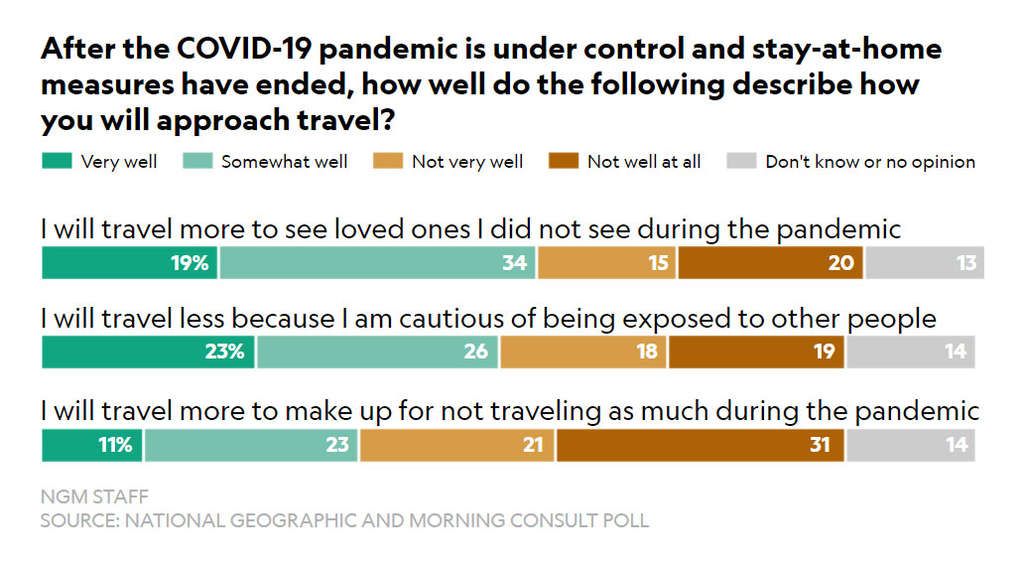What vaccines mean for the return of travel
COVID-19 jabs will eventually help tourism start again, but expect a trip full of immunity passports, mouthwash tests, and wary travelers.
AT THE END of December 2020, hope returned to the world, including hope for restarting travel, as countries began approving the Pfizer/BioNTech, Moderna, and Oxford-AstraZeneca vaccines. Sometime in 2021, when enough people are vaccinated against—and immune from—COVID-19, this could mean a return to globetrotting (or at least less-risky domestic vacations).
Yet anxiety surrounding travel isn't going away as medical workers and older Americans begin to get jabbed. In the United States, people are still reluctant to plan future trips. A December 2020 National Geographic and Morning Consult poll asked how respondents would approach travel after the coronavirus pandemic was under control. Forty-nine percent said they would "travel less due to concern of exposure to other people" and a third (34 percent) said they didn't expect to travel more in 2021 to make up for the lack of trips in 2020.
What do COVID-19 vaccines mean for travel in the near and short term, and how will attitudes toward them speed up (or slow down) the process of getting back on the road or into the skies? Here's what we've learned.
There's no vaccination for fear
"Vaccine hesitancy is a critical obstacle to overcome," says Dr. Tom Kenyon, the chief health officer of Project HOPE, a global health and humanitarian relief organization, and a former director at U.S. Centers for Disease Control and Prevention (CDC). To get back to travel, the U.S. and the world need herd immunity, thought to be achieved when about 70 percent of the population has protective antibodies. Kenyon says, though, that "70 percent is an arbitrary figure, and there is no 'off/on' switch with herd immunity." Recent news about more transmissible strains of COVID-19 suggests that herd immunity might only come when 90 percent of citizens have antibodies.


